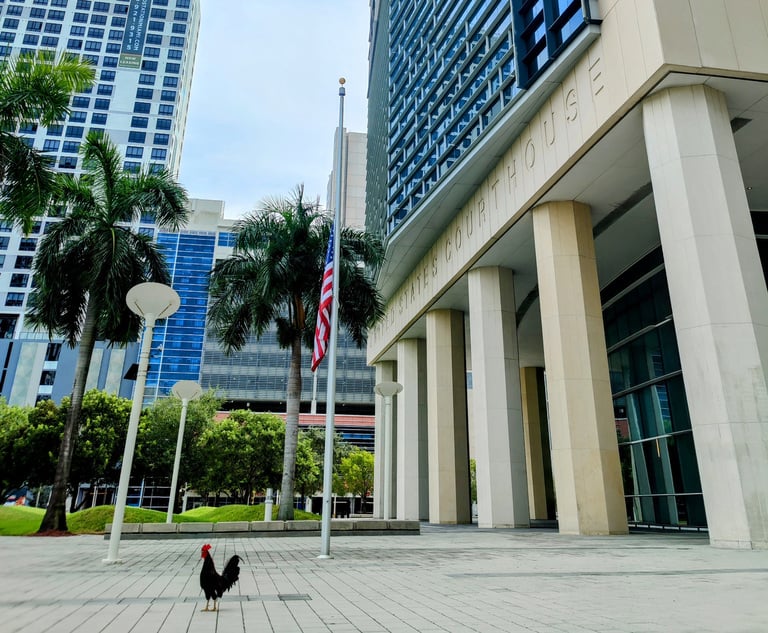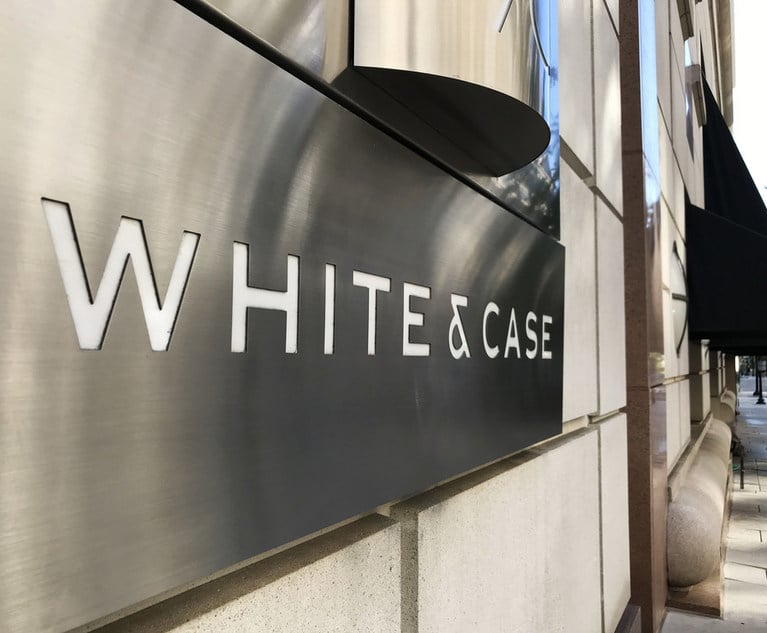Trump's Changes to U.S.-Cuba Deal Headed Our Way Soon
Even though Trump stated that he is "canceling" the engagement between the United States and Cuba, many of President Barak Obama's 2014 policy changes will remain unaffected. For example, the U.S. embassy in Havana will remain open, as will the Cuban embassy in Washington, D.C. Furthermore, U.S. commercial flights and cruise ships will continue to be permitted to travel to the island., writes Karel Suarez.
June 29, 2017 at 01:58 PM
4 minute read
On June 16, President Donald Trump announced a cancelation to the post-Dec. 14, 2014 U.S. policy toward Cuba. While speaking before prominent members of the Cuban-American community in Miami, President Trump stated that he is “canceling the last administration's completely one-sided deal with Cuba,” effective immediately. However, the announced changes do not take effect until the new regulations are officially issued by the different U.S. government departments. The Department of Treasury, along with its Office of Foreign Assets Control (OFAC), as well as the Department of Commerce, will be among the departments that will each have 30 days to review the changes the president has provided. After the 30-day review, the departments will begin drafting the new regulations. It may be months before the new regulations are officially issued, at which moment everything becomes official and binding.
Even though Trump stated that he is “canceling” the engagement between the United States and Cuba, many of President Barak Obama's 2014 policy changes will remain unaffected. For example, the U.S. embassy in Havana will remain open, as will the Cuban embassy in Washington, D.C. Furthermore, U.S. commercial flights and cruise ships will continue to be permitted to travel to the island. The $2,000 limit on remittances that can be sent to nonfamily members in Cuba, as well as the change to allow travelers to carry as much as $10,000 to Cuba, will likewise not be affected. President Trump also did not reverse Obama's elimination of the “wet foot, dry foot” policy—the policy that previously gave Cubans a special status and authorization to stay when they reached the United States. And finally, there will be no change in the restrictions on the types of goods that Americans can take out of Cuba, including the country's popular rum and cigars.
President Trump's new policy includes the following noteworthy changes: (1) U.S. business entities and individuals will not be able to engage in lawful commercial transactions with Cuban entities that are related to the Cuban military, intelligence or security services; and (2) Americans that were traveling to Cuba under an individual people-to-people general license on their own must once again travel solely in group people-to-people travel, which requires a tour operator.
This content has been archived. It is available through our partners, LexisNexis® and Bloomberg Law.
To view this content, please continue to their sites.
Not a Lexis Subscriber?
Subscribe Now
Not a Bloomberg Law Subscriber?
Subscribe Now
NOT FOR REPRINT
© 2024 ALM Global, LLC, All Rights Reserved. Request academic re-use from www.copyright.com. All other uses, submit a request to [email protected]. For more information visit Asset & Logo Licensing.
You Might Like
View All

Big Law Assembles as Cruise Lines Clinch Partial Victory in $439M Havana Docks Suit

Why Smartmatic Escaped Indictment: A Closer Look at the Charges Against Its Executives
4 minute read
Parachutes Not Necessary: White & Case Sees All Global Regulatory and White Collar Work as a Home Game
7 minute readTrending Stories
- 1The Pusillanimous Press
- 2Contract Lifecycle Management Company ContractPodAi Unveils Leah Drive
- 3'Great News' for Businesses? Judge Halts Transparency Mandate
- 4Consilio Announces ‘Native AI Review,’ Expanding Its Gen AI E-Discovery Offerings
- 5Federal Judge Hits US With $227,000 Sanction for Discovery Misconduct
Who Got The Work
Michael G. Bongiorno, Andrew Scott Dulberg and Elizabeth E. Driscoll from Wilmer Cutler Pickering Hale and Dorr have stepped in to represent Symbotic Inc., an A.I.-enabled technology platform that focuses on increasing supply chain efficiency, and other defendants in a pending shareholder derivative lawsuit. The case, filed Oct. 2 in Massachusetts District Court by the Brown Law Firm on behalf of Stephen Austen, accuses certain officers and directors of misleading investors in regard to Symbotic's potential for margin growth by failing to disclose that the company was not equipped to timely deploy its systems or manage expenses through project delays. The case, assigned to U.S. District Judge Nathaniel M. Gorton, is 1:24-cv-12522, Austen v. Cohen et al.
Who Got The Work
Edmund Polubinski and Marie Killmond of Davis Polk & Wardwell have entered appearances for data platform software development company MongoDB and other defendants in a pending shareholder derivative lawsuit. The action, filed Oct. 7 in New York Southern District Court by the Brown Law Firm, accuses the company's directors and/or officers of falsely expressing confidence in the company’s restructuring of its sales incentive plan and downplaying the severity of decreases in its upfront commitments. The case is 1:24-cv-07594, Roy v. Ittycheria et al.
Who Got The Work
Amy O. Bruchs and Kurt F. Ellison of Michael Best & Friedrich have entered appearances for Epic Systems Corp. in a pending employment discrimination lawsuit. The suit was filed Sept. 7 in Wisconsin Western District Court by Levine Eisberner LLC and Siri & Glimstad on behalf of a project manager who claims that he was wrongfully terminated after applying for a religious exemption to the defendant's COVID-19 vaccine mandate. The case, assigned to U.S. Magistrate Judge Anita Marie Boor, is 3:24-cv-00630, Secker, Nathan v. Epic Systems Corporation.
Who Got The Work
David X. Sullivan, Thomas J. Finn and Gregory A. Hall from McCarter & English have entered appearances for Sunrun Installation Services in a pending civil rights lawsuit. The complaint was filed Sept. 4 in Connecticut District Court by attorney Robert M. Berke on behalf of former employee George Edward Steins, who was arrested and charged with employing an unregistered home improvement salesperson. The complaint alleges that had Sunrun informed the Connecticut Department of Consumer Protection that the plaintiff's employment had ended in 2017 and that he no longer held Sunrun's home improvement contractor license, he would not have been hit with charges, which were dismissed in May 2024. The case, assigned to U.S. District Judge Jeffrey A. Meyer, is 3:24-cv-01423, Steins v. Sunrun, Inc. et al.
Who Got The Work
Greenberg Traurig shareholder Joshua L. Raskin has entered an appearance for boohoo.com UK Ltd. in a pending patent infringement lawsuit. The suit, filed Sept. 3 in Texas Eastern District Court by Rozier Hardt McDonough on behalf of Alto Dynamics, asserts five patents related to an online shopping platform. The case, assigned to U.S. District Judge Rodney Gilstrap, is 2:24-cv-00719, Alto Dynamics, LLC v. boohoo.com UK Limited.
Featured Firms
Law Offices of Gary Martin Hays & Associates, P.C.
(470) 294-1674
Law Offices of Mark E. Salomone
(857) 444-6468
Smith & Hassler
(713) 739-1250






